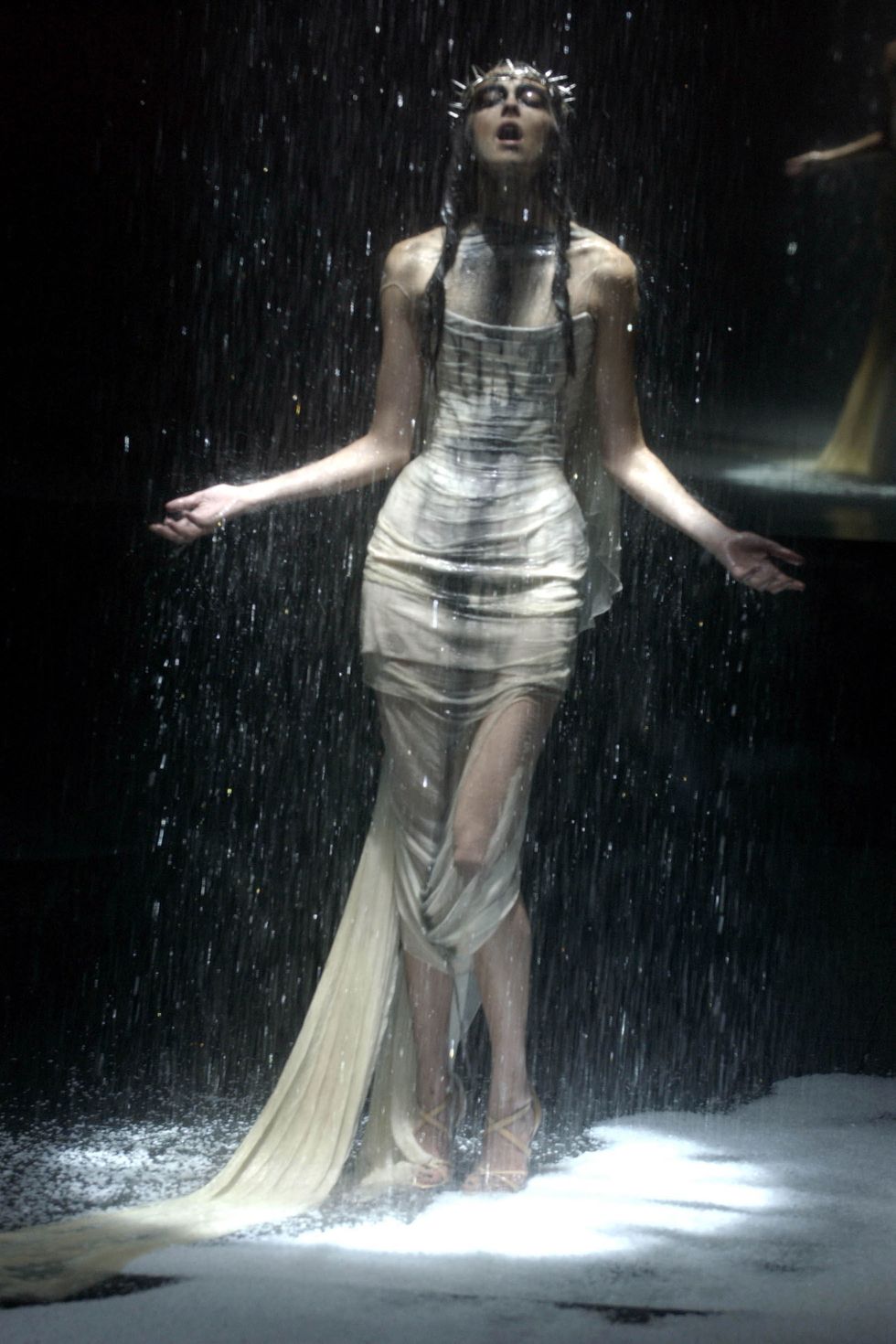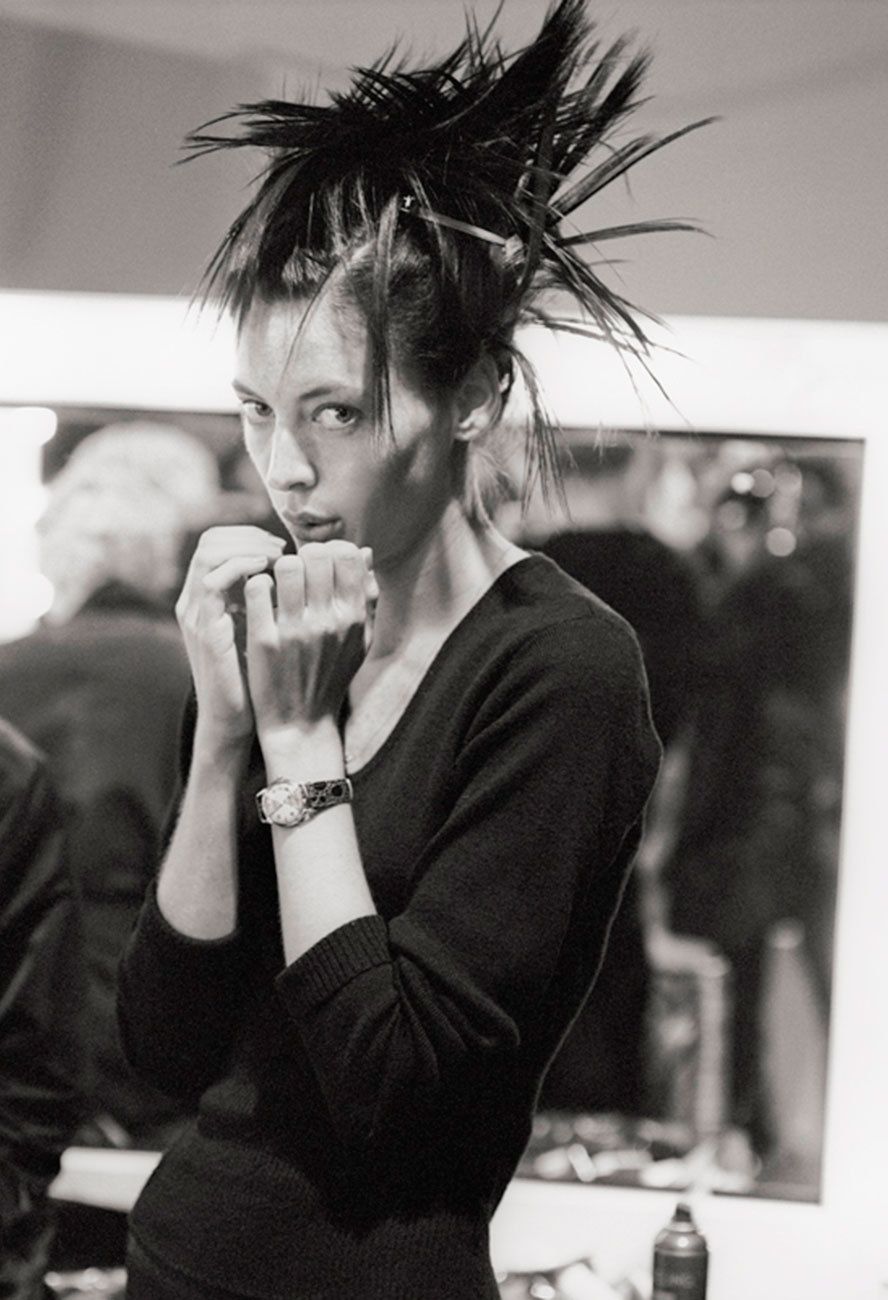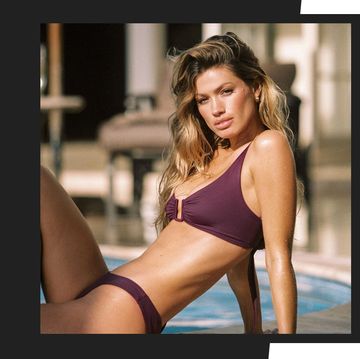The documentary medium was born for telling the story of Alexander McQueen. After all, who better to play this most outrageous, wild and sensitive of designers than the man himself?
It’s certainly the view of that film-makers Ian Bonhôte and Peter Ettedgui have taken in creating their moving documentary, McQueen, which focuses on the man behind the darkness, romance and beauty.
“If the subject matter is so amazing and you have visuals, visual support and stories to tell, then I think a documentary is better than a biopic because there’s no one better than the real people to tell the story,” Bonhôte told us. “Audiences don’t care if it has slick imagery; they care about the emotion of that visual or footage, whether it shows them something they didn’t know.”
McQueen’s tragic life has been highly-publicised – the working-class East End boy done good who trained at Savile Row and disrupted the fashion industry by putting his darkest inner torment and anguish in plain view. We’re all aware of his theatrical, ground-breaking shows that are discussed with hallowed reverence among fashion circles. We also all know how it tragically ended and how bereft the fashion industry has been since. McQueen’s life has been immortalised with a musical, two biographies and a full-length feature film with Jack O’Connell cast as the starring role - although he’s since exited the project.
And yet this latest documentary is among the most accurate, sensitive and moving. Using his collections as cornerstones, the documentary features candid interviews with colleagues, friends and even family of McQueen, who was known as Lee to the people he loved. His friend and mentor, Isabella Blow, told him to use the name Alexander as his brand name as she felt it sounded more upmarket.
“It’s still incredibly raw; Lee’s death left a void so there were a lot of difficult conversations,” said Ettedgui. “There were a lot of people who genuinely loved him – eight years is not a long time really when you’re talking about grief. The second thing is that there has been a lot of sensationalist tabloid stuff written about him – the two biographies, both of which are great in their own way, bare all in a way that is almost too much for a lot of his friends who didn’t want him exposed in that way.”
Unsurprisingly, there were some who declined to feature in the documentary – the most notable is his successor, Sarah Burton, for whom Lee was a long-term mentor. A meeting between the film-makers and the brand did take place, but ultimately Burton refused. Through archive material, she is still seen by her boss’ side.
“Quite rightly [the brand] said, ‘no, we want to concentrate on Sarah Burton and the future,’” said Ettedgui. “From our point of view, we went into that meeting feeling ambivalent because we didn’t want to make a brand film; we wanted to make a film about McQueen.”
One of the biggest questions that the two were asked when approaching their subject’s friends, family and colleagues was, ‘who are you to make this documentary?’ Although Ettedgui’s father is Joseph Ettedgui, the late founder of the British brand Joseph, neither film-makers knew McQueen nor have strong ties to the house. However, it’s this distance from the designer that enabled them to their job well.
“The greatest film-makers don’t have to know the subject first-hand; it’s about having the ability to learn a lot, but to remain objective,” said Bonhôte. “We’re not involved with him on a personal level. We could be objective, and I think the audience needs that. We had the emotional sensitivity that this documentary needed, but enough distance from the industry and the man to approach some of the more difficult subjects without being scared or upset by them.”
Nonetheless, the film-makers followed the mantra “emotion over information” and the result is a compelling, powerful insight into the designer’s life. Rare interviews have been sourced in which McQueen talks about his motivations and ambitions, and archive catwalk footage showing his earliest shows which have the same jaw-dropping appeal as they did when they were first seen in the 90s and early Noughties.
While most of us know about McQueen as a creative visionary, fewer will appreciate his business acumen. The documentary highlights how he used his role as Givenchy creative director to finance his still emerging label in London, and later how he haggled a lucrative partnership deal with the Gucci Group in 2000 - the rivals of his Givenchy bosses at LVMH – considered a hugely provocative move. Gucci acquired a 51 per cent stake and ensured that McQueen would still have “full and complete freedom”, yet supplied him with the financial backing needed to grow his brand.
“He was on the level of Zuckerberg,” said Bonhôte. “He played those conglomerates. He sold 51 per cent of his company aged just 31, kept creative control and was given a huge amount of money for his shows, along with a very healthy salary. Not bad for the kid who dropped out of school at 15. That fashion fight between the Gucci Group and LVMH could have been a movie in itself.”
“He was so ahead of the time,” adds Ettedgui. “Look at the Highland Rape collection, which was considered misogynistic at the time. You can tease out themes within that which fit in with what’s happening now with Time’s Up. He was vocal about mental health too with the Voss collection which was set in a makeshift asylum – he was genuinely a visionary.”
There’s one interview with McQueen that will feel perhaps uncomfortable for the brand’s current staff – when asked who he’d want his successor to be, he replies "No one". He adds emphatically, “Burn the house down."
“I think he did mean that because he felt that he was the core of the shows,” says Ettedgui. “That said, Sarah Burton is seen working at his side in the documentary and my feeling is that he would have loved that they had the balls to appoint someone with no name, someone who no one knew of outside of McQueen to be the person who took it on. And she pays tribute to what he did through the archive. This is of course pure personal speculation.”
Given that McQueen was famously anti-establishment (legend has it that he sewed expletive insults into the lining of Prince Charles’ jackets when he was working on Savile Row), what would he have made of his label’s new reputation as a favourite of the royal family? Burton’s most famous commission came by way of the Duchess of Cambridge’s wedding dress in 2011.
“He always made wedding dresses for posh girls,” said Ettedgui. “He was bought in via the backdoor by Isabella Blow because he couldn’t go through the foyer of Vogue because he looked too rough. Plum Sykes, for example, he’d take her into the loo, measure her up and eventually made her wedding dress. He enjoyed that because it was pure couture and he liked that side of what he did.”
We’ll never know for sure, but for anyone with an interest in fashion or just talent of the highest form, McQueen is a must.
McQueen is out in cinemas from 8 June



















